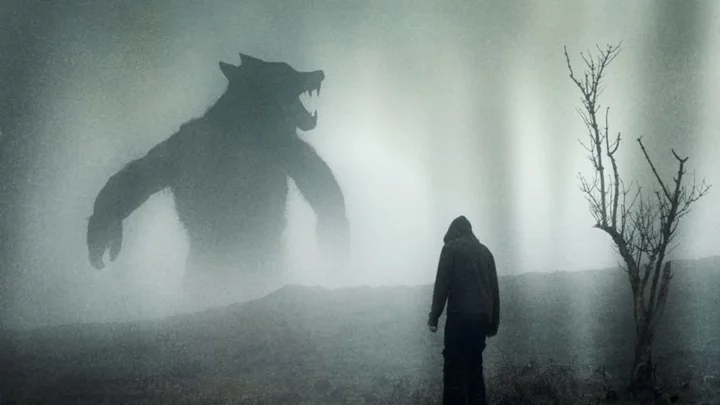As any good defense attorney will tell you, you should absolutely never, ever volunteer that you’re guilty of anything—at least not without consulting your representation first. There’s particularly no upside to cheerfully confessing that one is a werewolf. But that strategy was lost on Thiess of Kaltenbrun, a 17th-century man who found himself mired in legal drama thanks to his admission that he was a mythological beast, and thus subject to judicial suspicion over “lycanthropy and other prohibited and impious acts.”
The Howling
Thiess (sometimes spelled Thies) was a senior citizen in his eighties who loitered around Jürgensburg, Livonia, in the late 1600s. As judges understood it, he had some information about a robbery that had taken place at a local church as well as the suspect, a man named Pirsen Tönniss, so they invited Thiess to testify as a witness [PDF]. That’s when his problems began.
The idea of a shapeshifter had roots in Greek and Nordic cultures. In 1500s France, killers Pierre Burgot and Michel Verdun claimed to be werewolves as well as murderers and were burned at the stake. Other killers also claimed lycanthropy, and the condition—imagined though it may be—took on a rather sinister connotation.
That didn’t stop Thiess from readily declaring himself a werewolf. He had actually made the admission while in court years earlier as a way of explaining why his nose was broken. After stealing some wheat and other grains, he said, a farmer sore about the theft had smashed his face with a broom. This, Thiess explained, had happened in hell, though he would later explain “hell” was an underground chamber located adjacent to a nearby swamp. The story was so bizarre that Thiess was mostly ignored. (It’s not clear whether he was attempting to seek justice for the assault and thus was in court, though apparently his nose really was injured.) Despite this, Thiess appeared to be more or less tolerated in the community.
But this time, the matter was more serious. As a witness for the church robbery case, Thiess’s credibility was important. And although his transformations were not germane to the main issue of the theft, Thiess couldn’t be dissuaded from talking about it. He had, he said, spent time as such a creature but had recused himself more than a decade prior.
Thiess also stressed he was a werewolf on the side of good. He said the food he mentioned in his previous testimony had actually been pilfered by sorcerers: Thiess stole it back to ensure plentiful crops, he explained, referring to himself and others in his pack as “hounds of God.”
Intrigued, the judges asked him about the semantics of being a werewolf who can travel to hell. At first, Thiess had a somewhat plausible explanation. A transformation consisted of donning wolf pelts. At some point, though, Thiess seemed to discard this notion as too pedestrian. When asked about it a second time, he gave an answer more in line with myth: that he and his colleagues transformed into wolves, at which point they would go off in search of animals to consume.
To become a wolf, Thiess said, was not a matter of biting someone. Instead, his powers of transmutation could be passed by breathing into a jug three times and handing it to someone else.
That Thiess wasn’t escorted from court is attributable to a couple of things. For one, it was the 1600s, and witch trials weren’t unheard of. For another, Thiess was actually in the employ of one judge, Bengt Johan Ackerstaff, and even lived on his property. Ackerstaff asserted that Thiess was generally a trustworthy individual, though one imagines a deepening embarrassment as his employee continued to explain how he was part wolf.
Hairy Testimony
The proceedings grew very detailed, and it’s possible the judges simply wanted to see if they could paint Thiess into a corner. But the canny Thiess had an answer for virtually everything.
At one point, the judges appeared confused that Thiess could run off with animals and then proclaim they were not devoured raw but cooked. How could that be? How would a werewolf use cooking utensils? Thiess explained he and his fellow wolves tore away at the meat, used their paws to put the pieces on spits, then transformed back into humans to consume their meals, giving them opposable thumbs again.
But, the judges asked, wasn’t livestock guarded by excitable dogs? Yes, Thiess admitted, but in wolf form he could outrun them. Fine, but didn’t farmers notice the animals were missing? Yes, Thiess said, but they were stolen some distance from home.
The judges tried a different approach. How could the food taken from hell result in a bountiful harvest when harvesting season hadn’t happened yet? The food had been cultivated while in hell, Thiess explained. How had he been in hell so recently, then, if he had given up his werewolf lifestyle a decade prior? Finally cornered, Thiess admitted that part wasn’t true—he hadn’t given it up then, but he was doing so now.
It is at this point the hearing turned into somewhat of an intervention. The court invited the local pastor, Magister Bucholtz, to admonish Thiess to repent his sins. (Despite Thiess’s insistence he wolfed for good, most seemed to agree that turning into a bestial creature was more suited to the devil’s work.)
Thiess probably should have taken the hint, but he did not. He maintained his activity was in service of God and that the pastor, in so many words, was a child compared to the elderly and presumably more wizened Thiess. He also offered that he tried healing sick and injured animals, which the court was understandably wary about. In addition to being vaguely demonic, he also sounded like a con man.
Having turned what appeared to be a simple matter of petty theft into a trial involving God, the devil, and lycanthropy, Thiess was summarily dismissed and told to expect a ruling on his heresy by the royal district court. On October 31, 1692—a fitting date—Judge Herman Georg von Trautvetter found that in the matter of Thiess’s “vexatious and highly forbidden misdeeds,” he was guilty of harboring diabolical delusions. The judgment: a flogging consisting of 20 lashes.
Before Thiess was dismissed, another witness named Gurrian was brought in to speak. Asked if Thiess was known in the area, Gurrian took the question in stride. “Who doesn’t know him?”
This article was originally published on www.mentalfloss.com as Thiess of Kaltenbrun, the Man Who Went on Trial for Being a Werewolf.









